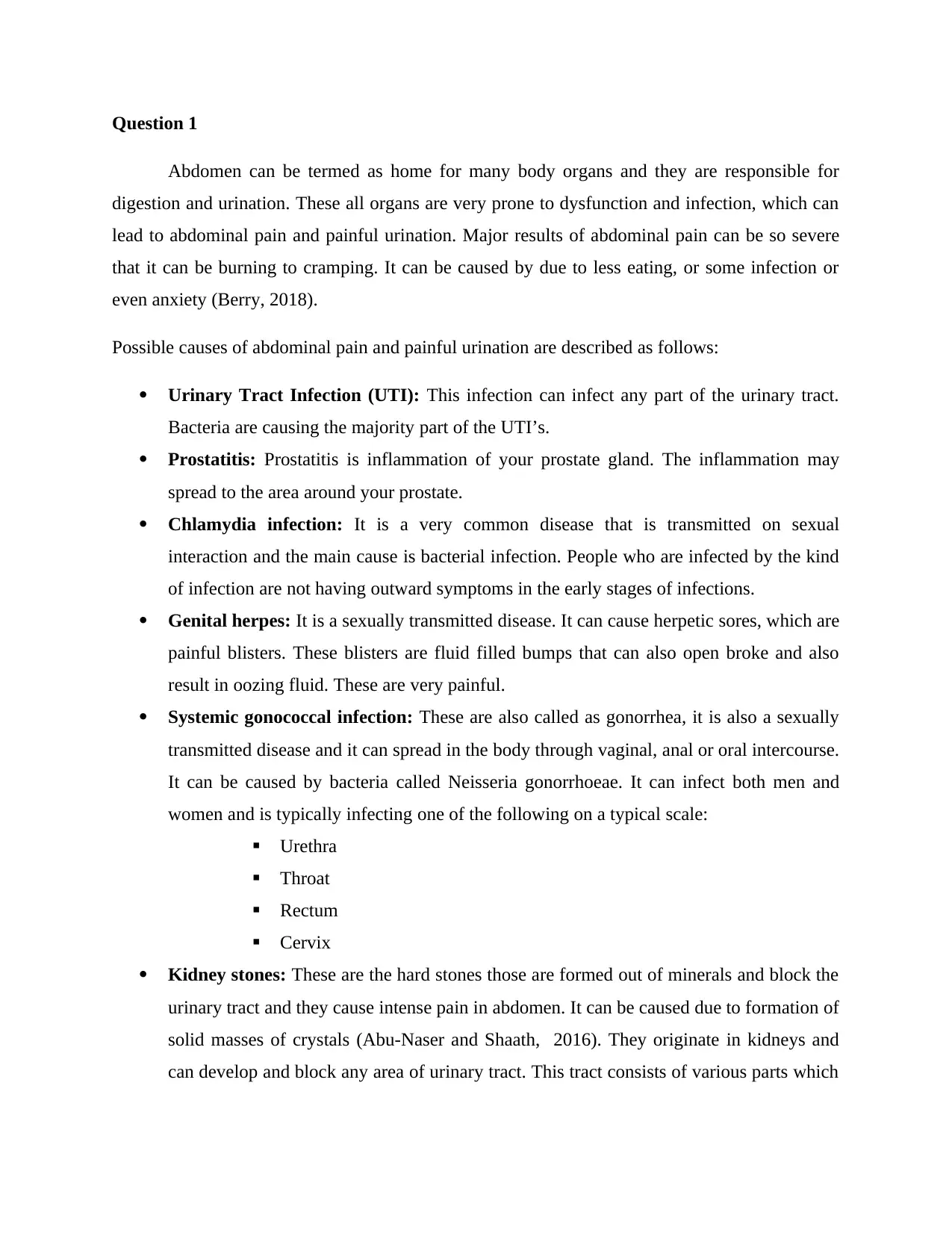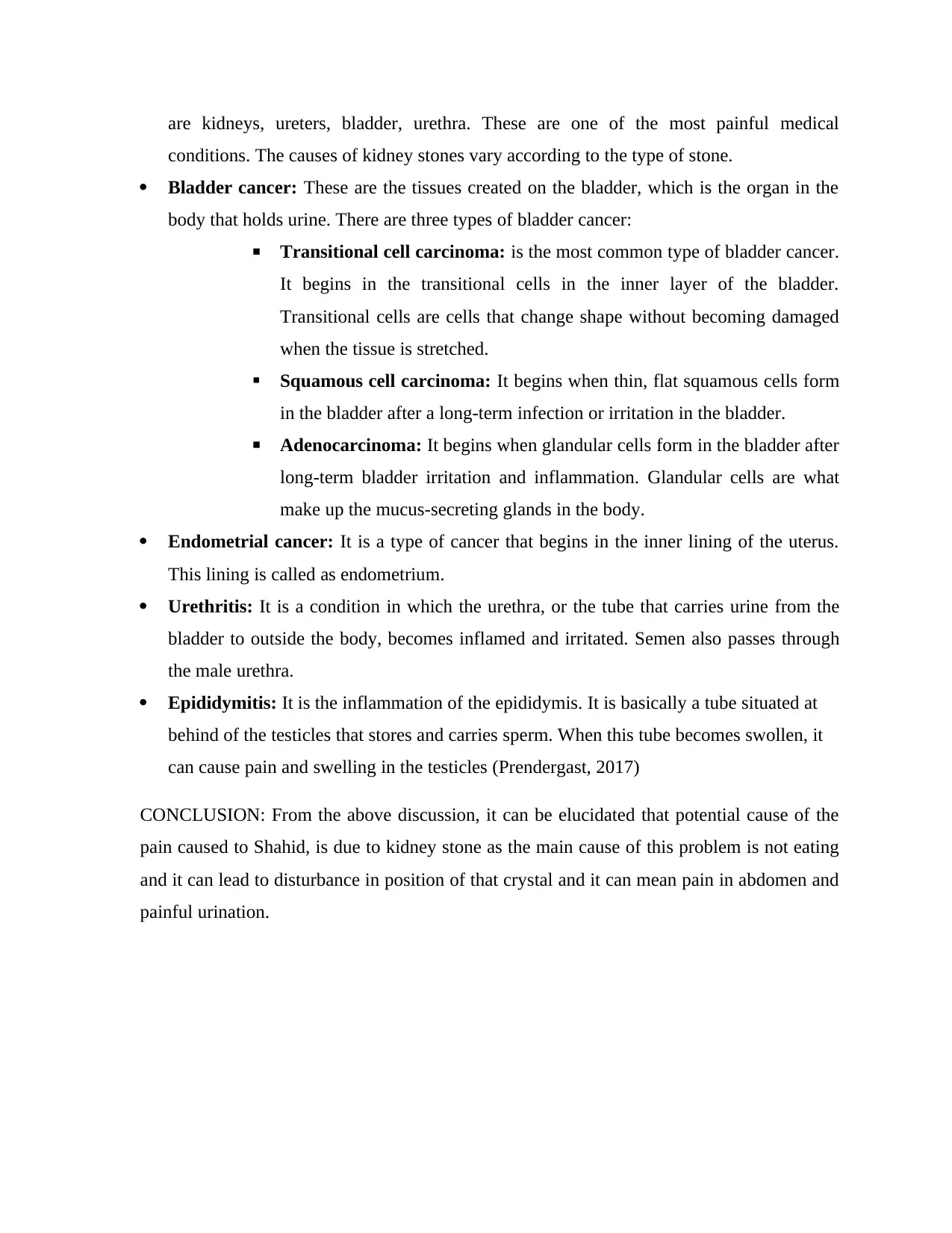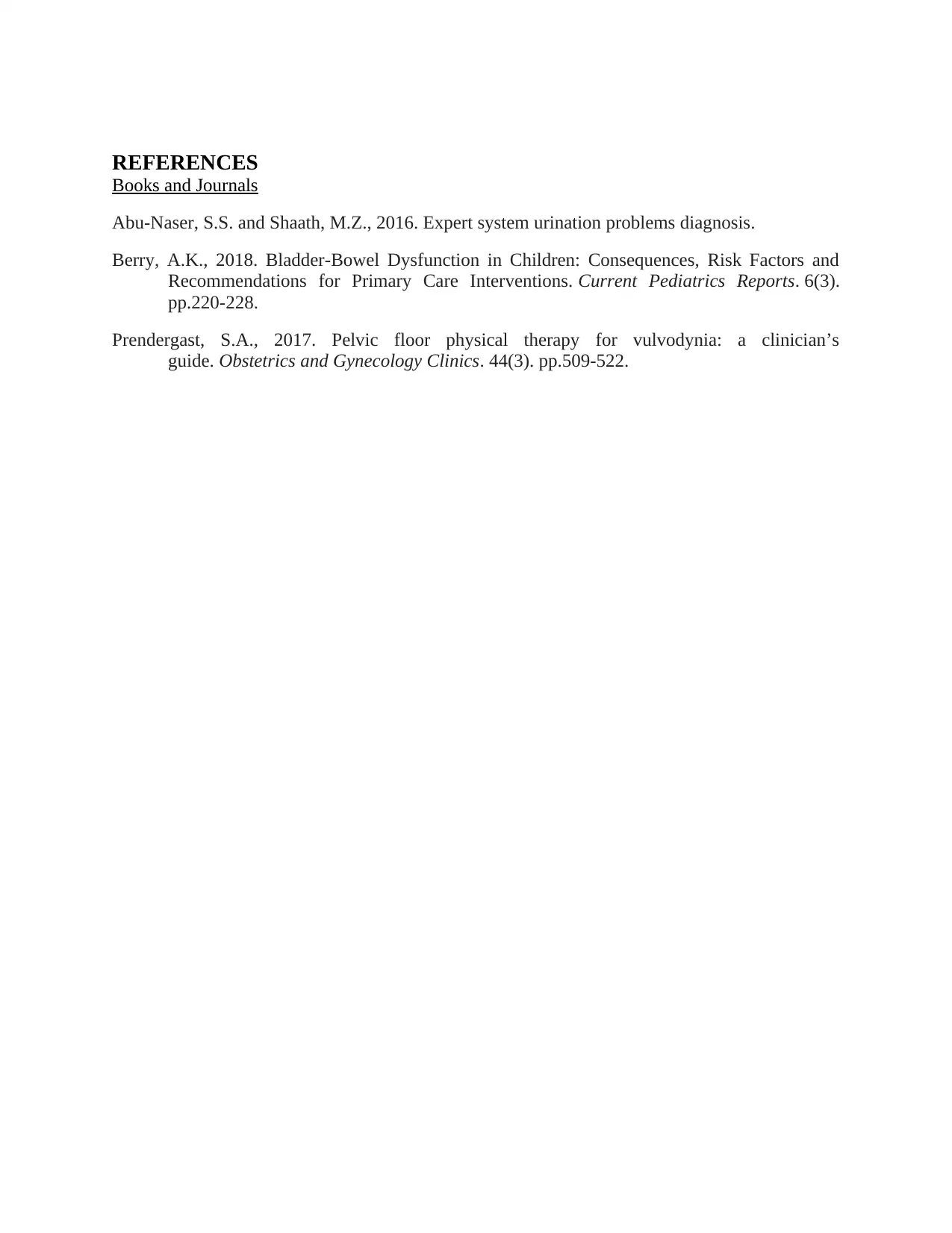Exploring Causes and Diagnosis of Abdominal Pain and Painful Urination
VerifiedAdded on 2023/01/03
|5
|804
|95
Homework Assignment
AI Summary
This assignment delves into the potential causes of abdominal pain and painful urination, exploring a range of medical conditions. It begins by highlighting the abdomen's role and vulnerability to dysfunction, leading to pain and discomfort. The assignment then systematically outlines various potential causes, including Urinary Tract Infections (UTIs), Prostatitis, Chlamydia infection, Genital herpes, Systemic gonococcal infection, Kidney stones, Bladder cancer (including its different types), Endometrial cancer, Urethritis, and Epididymitis. Each condition is described with its specific characteristics and potential impact. The conclusion suggests that kidney stones could be the cause of the pain, emphasizing the importance of understanding the underlying factors. The assignment includes references to relevant books and journals to support its information.
1 out of 5












![[object Object]](/_next/static/media/star-bottom.7253800d.svg)